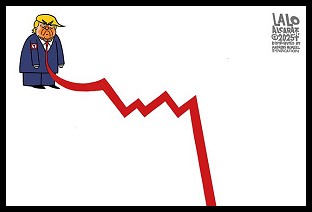 I'll withhold most of my personal thoughts here for the moment, since Gail Pellerin, County Clerk for Santa Cruz County, CA, has agreed to come back to continue this discussion on the Peter B. Collins Show this Friday. For the moment then, I'll just let you listen and offer your own thoughts on this conversation from last Friday's show.
I'll withhold most of my personal thoughts here for the moment, since Gail Pellerin, County Clerk for Santa Cruz County, CA, has agreed to come back to continue this discussion on the Peter B. Collins Show this Friday. For the moment then, I'll just let you listen and offer your own thoughts on this conversation from last Friday's show.
Pellerin and I appeared on PBC's radio show to discuss issues of Election Integrity, CA SoS Debra Bowen's "Top-to-Bottom Review" and the Sequoia Voting System that Pellerin uses in Santa Cruz, the hometown of former CA SoS Bruce McPherson.
She is on the public record as having said last July at the public hearing in Sacramento for Bowen's TTB Review: "I can guarantee that every eligible vote is counted accurately," about which, you can imagine, I challenged her on the show. As well, in the interview (complete audio below) she commits to sending her voting systems home yet again on "sleepovers" with poll workers in next year's elections. I also had a thing or two to say to say about that, as you may have guessed. Suffice to say, it was a lively interview.
Pellerin --- presumably a Democrat, as she once worked in the CA state assembly for then-Speaker Willie Brown --- was scheduled only for the first half-hour of the show, but fortunately called back for the final segment to answer some of the questions that I didn't have time to ask her about when she was on the air. I greatly appreciate her willingness to do so and to stand up to the fire.
You'll want to stay tuned for that final segment.
As well, be sure to tune in this Friday at 5pm on the PBC Show (listening link here), where she has agreed to come back and pick up where we left off. I greatly appreciate her willingness to do so. The continued discussion can only benefit voters both in Santa Cruz (one of the locations where Peter's show is heard live on the air) and across the nation, where Elections Officials and Election Integrity advocates must continue to find ways to work together to solve our problems and push back at the damaging, cynical, divisive, selfish, and inaccurate propaganda being forwarded by the Voting Machine Companies.
NOTE 9/22/07: Pellerin returned for another full hour on 9/21/07, the week following this broadcast, in order to follow up on this week's interview. That subsequent second interview and text transcript has now been posted here...
-- Santa Cruz County, CA, County Clerk Gail Pellerin and Brad Friedman on the Peter B. Collins Show, 9/14/07 (appx 41 mins. w/ commercials now removed):
Complete text-transcript of the hour now follows below...


 Trump EPA Guts Enviro Justice Office: 'BradCast' 4/24/25
Trump EPA Guts Enviro Justice Office: 'BradCast' 4/24/25 'Green News Report' 4/24/25
'Green News Report' 4/24/25
 Nation's Largest Broadcaster Mandates News Outlets Hoax Viewers to Help Gut FCC Rules: 'BradCast' 4/23/25
Nation's Largest Broadcaster Mandates News Outlets Hoax Viewers to Help Gut FCC Rules: 'BradCast' 4/23/25 Trump's FCC on Precipice of Ending All Limits on Corporate Control of Local TV Stations
Trump's FCC on Precipice of Ending All Limits on Corporate Control of Local TV Stations GOP Earth Day 2025 Hypocrisies and Dilemmas: 'BradCast' 4/22/25
GOP Earth Day 2025 Hypocrisies and Dilemmas: 'BradCast' 4/22/25 'Green News Report' 4/22/25
'Green News Report' 4/22/25 Pope Francis Dies,
Pope Francis Dies, Sunday
Sunday  Sunday 'Zero Day' Toons
Sunday 'Zero Day' Toons Soc. Sec. Expert Warns DOGE Hastening Collapse, Privati-zation: 'BradCast' 4/10/2025
Soc. Sec. Expert Warns DOGE Hastening Collapse, Privati-zation: 'BradCast' 4/10/2025 'Green News Report' 4/10/25
'Green News Report' 4/10/25 Trump Blinks, Chaos Reigns, Markets Spike as Many Tariffs Remain Despite 90-Day 'Pause': 'BradCast' 4/9/25
Trump Blinks, Chaos Reigns, Markets Spike as Many Tariffs Remain Despite 90-Day 'Pause': 'BradCast' 4/9/25 SCOTUS Deportation Ruling Grimmer Than First Appears: 'BradCast' 4/8/25
SCOTUS Deportation Ruling Grimmer Than First Appears: 'BradCast' 4/8/25 'Green News Report' 4/8/25
'Green News Report' 4/8/25 Cliff Diving with Donald: 'BradCast' 4/7/25
Cliff Diving with Donald: 'BradCast' 4/7/25 Sunday 'Don't Look Down' Toons
Sunday 'Don't Look Down' Toons 'Green News Report' 4/3/25
'Green News Report' 4/3/25 'Mob Boss' Trump's Trade Sanctions Tank U.S., World Markets: 'BradCast' 4/3/25
'Mob Boss' Trump's Trade Sanctions Tank U.S., World Markets: 'BradCast' 4/3/25 Crawford Landslide in WI; Booker Makes History in U.S. Senate: 'BradCast' 4/2/25
Crawford Landslide in WI; Booker Makes History in U.S. Senate: 'BradCast' 4/2/25 Judge Ends Challenge to GA's Unverifiable, Insecure Vote System: 'BradCast' 4/1/25
Judge Ends Challenge to GA's Unverifiable, Insecure Vote System: 'BradCast' 4/1/25 Bad Court, Election News for Trump is Good News for U.S.: 'BradCast' 3/31
Bad Court, Election News for Trump is Good News for U.S.: 'BradCast' 3/31 Vets Push Back at Plan to Slash Health Care, 80K V.A. Jobs: 'BradCast' 3/27/25
Vets Push Back at Plan to Slash Health Care, 80K V.A. Jobs: 'BradCast' 3/27/25 Signal Scandal Worsens for Trump, GOP; Big Dem Election Wins in PA: 'BradCast' 3/26
Signal Scandal Worsens for Trump, GOP; Big Dem Election Wins in PA: 'BradCast' 3/26 'Emptywheel': Trump NatSec Team Should 'Resign in Disgrace': 'BradCast' 3/25/25
'Emptywheel': Trump NatSec Team Should 'Resign in Disgrace': 'BradCast' 3/25/25 USPS 'Belongs to the People, Not the Billionaires': 'BradCast' 3/24/25
USPS 'Belongs to the People, Not the Billionaires': 'BradCast' 3/24/25
 VA GOP VOTER REG FRAUDSTER OFF HOOK
VA GOP VOTER REG FRAUDSTER OFF HOOK Criminal GOP Voter Registration Fraud Probe Expanding in VA
Criminal GOP Voter Registration Fraud Probe Expanding in VA DOJ PROBE SOUGHT AFTER VA ARREST
DOJ PROBE SOUGHT AFTER VA ARREST Arrest in VA: GOP Voter Reg Scandal Widens
Arrest in VA: GOP Voter Reg Scandal Widens ALL TOGETHER: ROVE, SPROUL, KOCHS, RNC
ALL TOGETHER: ROVE, SPROUL, KOCHS, RNC LATimes: RNC's 'Fired' Sproul Working for Repubs in 'as Many as 30 States'
LATimes: RNC's 'Fired' Sproul Working for Repubs in 'as Many as 30 States' 'Fired' Sproul Group 'Cloned', Still Working for Republicans in At Least 10 States
'Fired' Sproul Group 'Cloned', Still Working for Republicans in At Least 10 States FINALLY: FOX ON GOP REG FRAUD SCANDAL
FINALLY: FOX ON GOP REG FRAUD SCANDAL COLORADO FOLLOWS FLORIDA WITH GOP CRIMINAL INVESTIGATION
COLORADO FOLLOWS FLORIDA WITH GOP CRIMINAL INVESTIGATION CRIMINAL PROBE LAUNCHED INTO GOP VOTER REGISTRATION FRAUD SCANDAL IN FL
CRIMINAL PROBE LAUNCHED INTO GOP VOTER REGISTRATION FRAUD SCANDAL IN FL Brad Breaks PA Photo ID & GOP Registration Fraud Scandal News on Hartmann TV
Brad Breaks PA Photo ID & GOP Registration Fraud Scandal News on Hartmann TV  CAUGHT ON TAPE: COORDINATED NATIONWIDE GOP VOTER REG SCAM
CAUGHT ON TAPE: COORDINATED NATIONWIDE GOP VOTER REG SCAM CRIMINAL ELECTION FRAUD COMPLAINT FILED AGAINST GOP 'FRAUD' FIRM
CRIMINAL ELECTION FRAUD COMPLAINT FILED AGAINST GOP 'FRAUD' FIRM RICK SCOTT GETS ROLLED IN GOP REGISTRATION FRAUD SCANDAL
RICK SCOTT GETS ROLLED IN GOP REGISTRATION FRAUD SCANDAL VIDEO: Brad Breaks GOP Reg Fraud Scandal on Hartmann TV
VIDEO: Brad Breaks GOP Reg Fraud Scandal on Hartmann TV RNC FIRES NATIONAL VOTER REGISTRATION FIRM FOR FRAUD
RNC FIRES NATIONAL VOTER REGISTRATION FIRM FOR FRAUD EXCLUSIVE: Intvw w/ FL Official Who First Discovered GOP Reg Fraud
EXCLUSIVE: Intvw w/ FL Official Who First Discovered GOP Reg Fraud GOP REGISTRATION FRAUD FOUND IN FL
GOP REGISTRATION FRAUD FOUND IN FL



















 Finally catching my breath, and beginning to get back up to speed here at home after three months on the road. Given that I'd hoped to find a few much needed days off over the summer --- and largely failed, but for a few days snuck in here and there --- it seemed a worthy effort at reviewing some of what we were able to do here, even while on the road.
Finally catching my breath, and beginning to get back up to speed here at home after three months on the road. Given that I'd hoped to find a few much needed days off over the summer --- and largely failed, but for a few days snuck in here and there --- it seemed a worthy effort at reviewing some of what we were able to do here, even while on the road. During last Wednesday's televised address from the Oval Office,
During last Wednesday's televised address from the Oval Office,  Alberto Gonzales
Alberto Gonzales  George W. Bush did not --- I repeat, did not --- melt into a puddle of tears tonight on live television during
George W. Bush did not --- I repeat, did not --- melt into a puddle of tears tonight on live television during 













